Understanding the Positive Aspects of Autism
Autism Spectrum Disorder (ASD) encompasses a variety of unique strengths and abilities that highlight the importance of a strengths-based perspective. Recognizing these qualities not only promotes empowerment and self-esteem but also fosters more inclusive educational, social, and workplace environments. In this article, we explore the diverse talents many autistic individuals possess, from special interests and exceptional memory to creative prowess and analytical skills, emphasizing how society can support and nurture these intrinsic strengths.
Core Strengths and Talents Common to Autistic Individuals
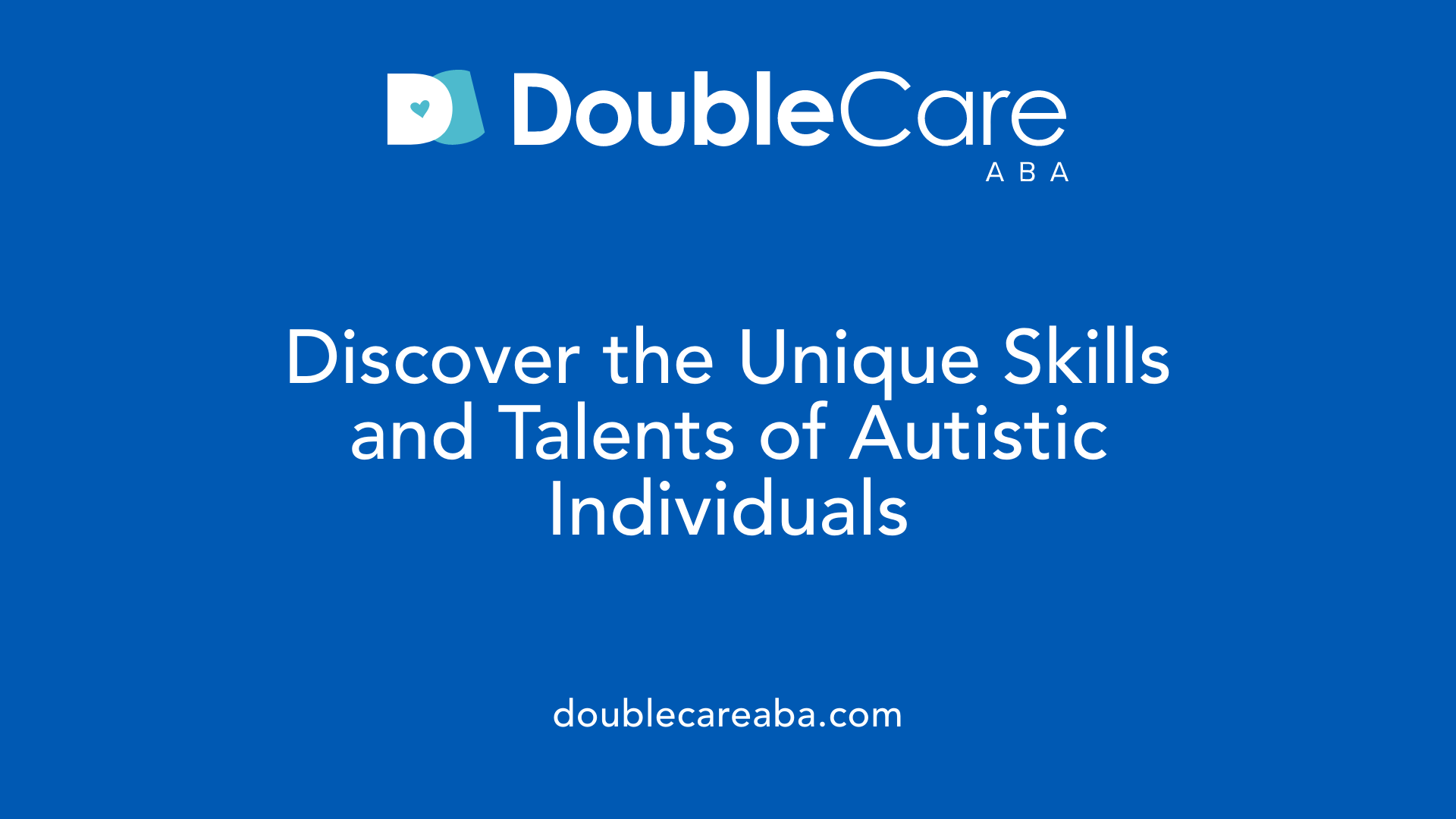
What are some common strengths and abilities associated with autism?
Many autistic individuals possess a distinctive set of skills and talents that set them apart. Early reading abilities, such as hyperlexia, are frequently observed, enabling children to recognize words and read at an advanced level for their age. Additionally, excellent memory and recall skills allow autistic people to remember vast amounts of information long-term, often with remarkable accuracy.
Visual thinking and pattern recognition are prevalent, with a keen eye for details that others might overlook. These strengths are complemented by strong logical and analytical reasoning skills, making many autistic individuals excel in fields like science, engineering, and mathematics. They often demonstrate a high capacity for precise, detail-oriented work, and a drive for order and perfection.
Sensory sensitivities are another defining feature, with heightened perception in visual, auditory, olfactory, and tactile domains. This can manifest as heightened sensory acuity, enabling exceptional performance in areas like music or design. Furthermore, sociocognitive traits such as honesty, integrity, and loyalty are common, fostering trustworthiness and deep personal connections.
Altogether, autism brings neurological diversity that contributes valuable skills and perspectives, enriching personal with professional life and encouraging societal innovation.
Developmental Perspectives and Educational Insights
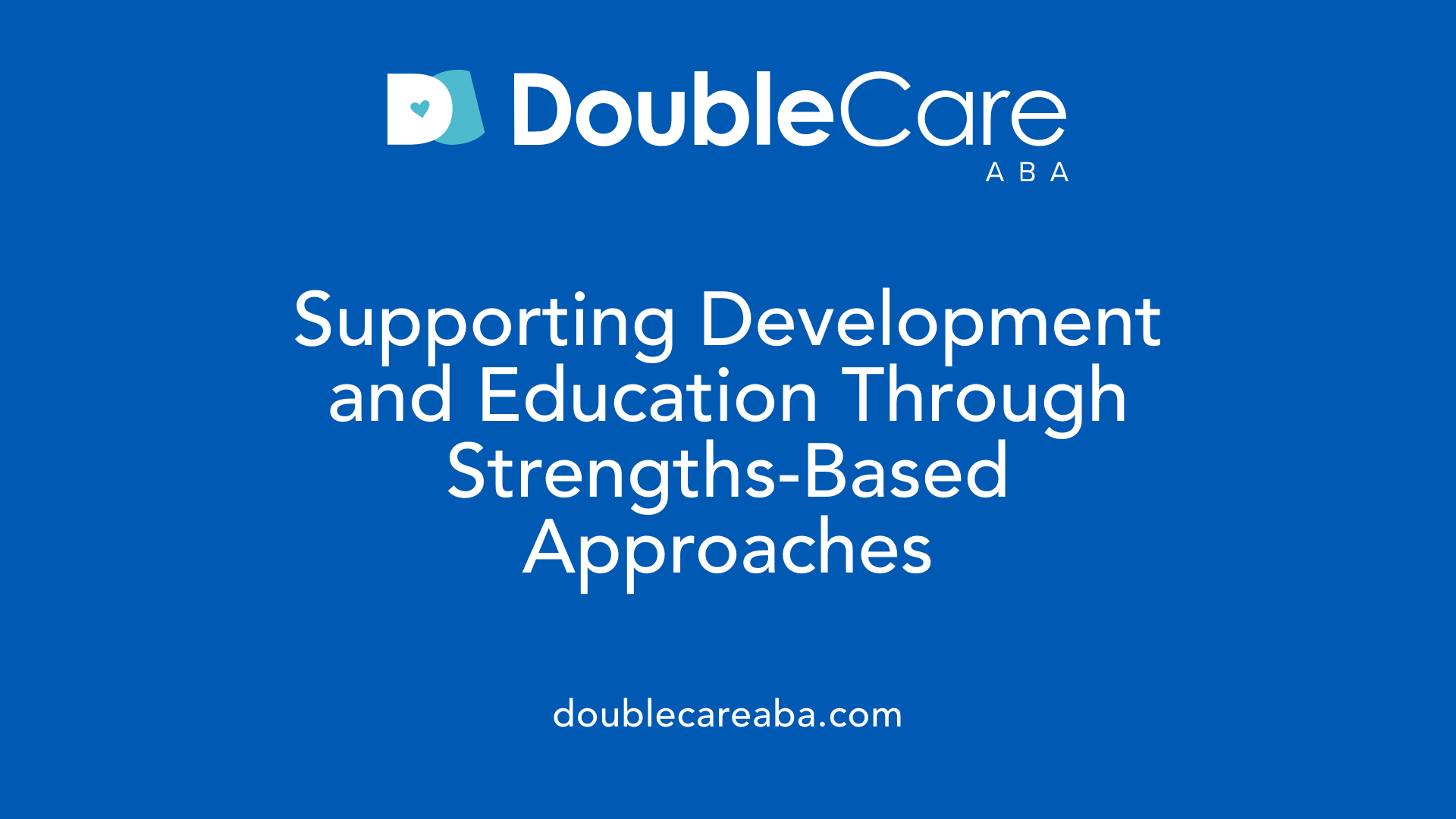
What are some common strengths and abilities associated with autism?
Autistic individuals often possess a unique set of strengths that distinguish them from neurotypical peers. These include heightened sensory perceptions such as visual hypersensitivity, acute hearing, and superior olfactory detection. Many excel in visual-spatial reasoning, pattern recognition, and attention to detail, which can translate into proficiency in arts, sciences, and mathematics. A deep capacity for memory—ranging from rote memorization to long-term recall—is common.
Cognitive traits like hyperfocus, systems thinking, and logical reasoning foster expertise in specialized areas. Autistic people frequently demonstrate exceptional problem-solving skills, creativity, especially in arts like music and visual arts, and a strong sense of honesty and loyalty. Early reading abilities like hyperlexia, alongside strengths in rule-based thinking, are also notable.
Furthermore, their character often reflects reliability, punctuality, and a meticulous drive for order and perfection. These strengths serve them well academically, professionally, and socially, especially when their interests are nurtured.
What are some strengths of autism in the workplace?
In the employment setting, autistic individuals bring numerous strengths that benefit workplaces and organizations. They often display superior creativity, focus, and deep concentration, driven by intense interests and hyperfocus. Their keen attention to detail makes them adept at tasks requiring precision, such as proofreading, data analysis, or quality control.
Many autistic employees exhibit strong honesty, integrity, and dedication, fostering trust and dependable work relationships. Their systematic thinking, logical problem-solving, and pattern recognition lead to innovative solutions and efficiency.
Research highlights that autistic workers are less influenced by social biases, offering fresh perspectives and challenging norms constructively. Their unique insights into niche areas can be transformative, especially when supported by tailored roles that leverage their specific strengths.
Additionally, attributes such as punctuality, adherence to routines, and a disciplined work ethic contribute to a reliable, consistent workforce. These qualities, combined with talents like excellent memory and systematic thinking, make autistic individuals valuable team members.
How early developmental signs reflect strengths
Autistic children often show early signs of their strengths through behaviors like hyperlexia, exceptional visual skills, and a fascination with details. They may excel in visual search tasks and demonstrate rapid learning of interests. Recognizing these early signs can guide educators and parents to develop tailored support that nurtures their abilities.
Special interests often form the foundation for developing skills in academics, social interactions, and daily life activities. Rote learning tendencies and a preference for structured routines can be harnessed to foster independence and confidence from a young age.
Educational strategies to leverage special interests and talents
Educators can tailor their teaching methods by incorporating children’s and students’ special interests into lessons. For example, using visual aids, pattern-based tasks, or interest-specific projects can boost engagement. Structured routines help children feel secure and support their focus.
Leveraging strengths such as photographic memory or special talents in art or math allows for personalized learning pathways. Encouraging creativity and providing opportunities for mastery enhances motivation and self-esteem.
Using assessments like IQ tests and skill evaluations
Developmental assessments, including IQ tests and skill-specific evaluations, help identify individual strengths early. These tools inform tailored educational plans, workplace accommodations, and support strategies.
For example, children demonstrating high visual reasoning can be directed towards visual arts or scientific exploration. Recognizing advanced memory or problem-solving capabilities informs decisions about advanced coursework or mentoring opportunities.
The role of early intervention and tailored support
Early intervention strategies focus on identifying and fostering strengths alongside managing challenges. Support programs designed to develop communication, social skills, and emotional regulation are complemented by strength-based approaches.
Providing rich learning environments that align with individual talents encourages positive development. Tailoring support in classrooms and workplaces enables autistic individuals to flourish and reach their potential.
Creative and artistic abilities in children and adults
Many autistic children and adults display remarkable artistic talents and creativity. This includes drawing, music, visual arts, and literary pursuits. Their deep imagination and attention to detail allow for the production of works that are unique and compelling.
Supporting these creative strengths through accessible art programs or inclusive artistic communities can promote self-expression and emotional well-being. Artistic pursuits often serve as a bridge to social interaction, further enhancing their quality of life.
| Topic | Strengths/Abilities | Additional Notes |
|---|---|---|
| Sensory Strengths | Visual hypersensitivity, perfect pitch, acute hearing, enhanced olfactory_Good | Can be harnessed in arts, music, and scientific industries |
| Cognitive Talents | Pattern recognition, logical reasoning, exceptional memory, hyperfocus | Benefit in math, science, engineering, research |
| Artistic and Creative Skills | Visual arts, music, literary talents, imagination | Promote through art therapy, creative workshops |
| Behavioral Traits | Honesty, loyalty, punctuality, dedication | Foster trustful environments and structured routines |
| Social and Communication Strengths | Focused interests, deep knowledge, directness | Can be used to build niche expertise and roles |
By understanding and nurturing these inherent strengths, educators and employers can create environments where autistic individuals thrive, contributing uniquely to society and fostering greater inclusion and diversity.
Autistic Capabilities in Creativity and Innovation
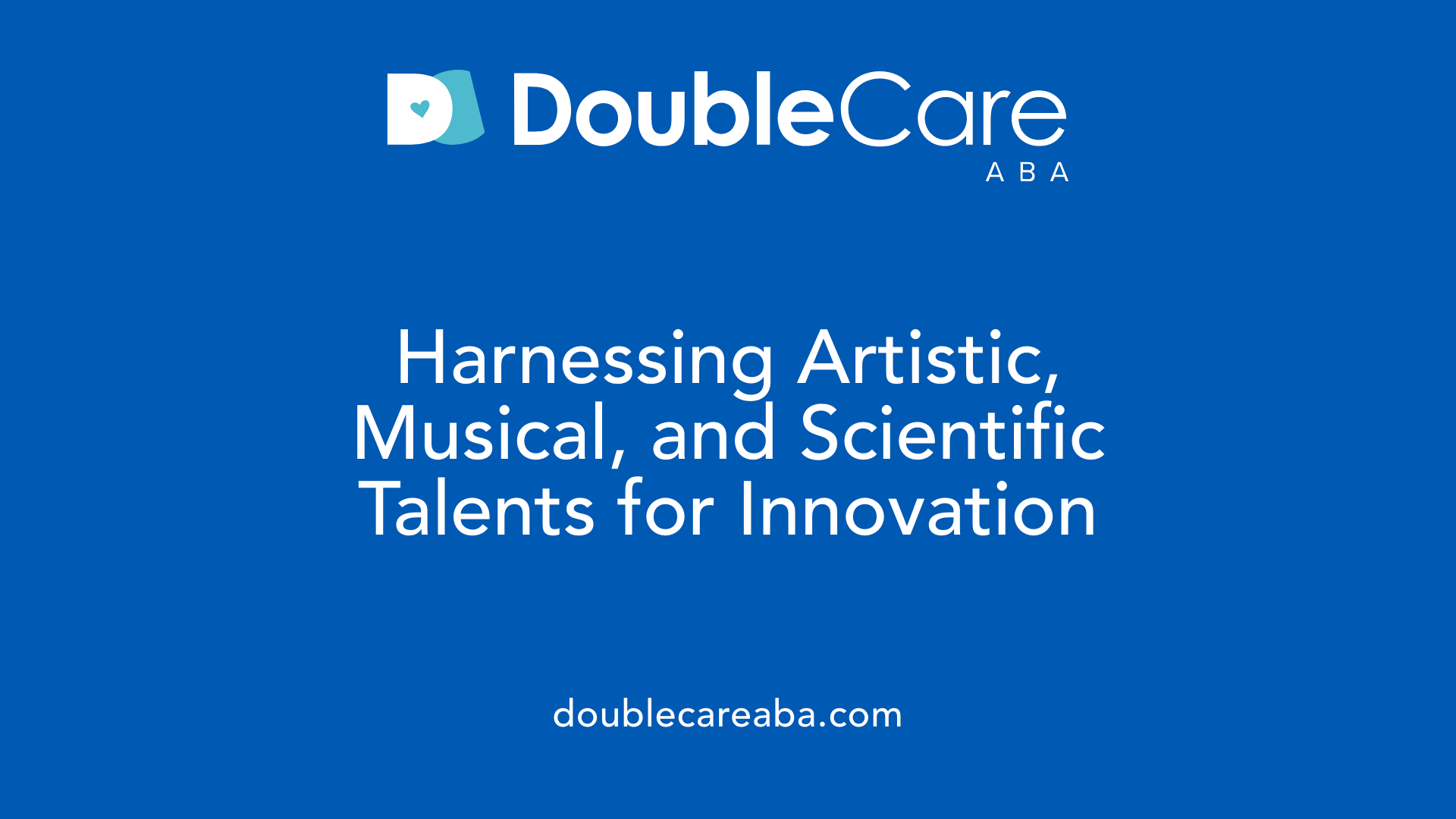
What are some examples of special abilities or superpowers associated with autism?
Autistic individuals often possess extraordinary strengths that set them apart in various fields. Many have exceptional visual and auditory talents, such as heightened color perception, sensitivity to complex sounds, and advanced pattern recognition. These sensory strengths contribute significantly to arts, music, and scientific research.
In addition to sensory abilities, autistic people frequently exhibit powerful memory systems, allowing them to recall extensive details over long periods. Their capacity for hyperfocus—intense concentration on specific topics—enables them to develop deep expertise and mastery in areas of special interest. Creative talents are also common, with many producing remarkable artworks, musical compositions, and literary works.
Furthermore, their logical thinking, mathematical skills, and ability to recognize complex patterns drive innovation in science, engineering, and technology. Many autistic individuals show a strong sense of justice and honesty, fostering trustworthiness and dedication in their pursuits. Their unique cognitive and neurological profiles can lead to groundbreaking discoveries and inventions.
How can understanding autism's positive traits contribute to a strengths-based perspective?
Recognizing the diverse strengths and abilities of autistic individuals shifts the focus from deficits to talents, promoting a more positive and empowering outlook. A strengths-based perspective fosters self-esteem and confidence, enabling autistic people to excel in areas aligned with their natural skills.
This approach supports tailored education and employment opportunities, highlighting capabilities such as creativity, analytical thinking, memorization, and sensory perception. It also encourages society to value neurodiversity, appreciating contributions to arts, science, and innovation.
When strengths are acknowledged and nurtured, autistic individuals can contribute uniquely to society, advancing fields like technology, medicine, arts, and sciences. Emphasizing abilities over limitations promotes inclusion, diversity, and mutual understanding, creating environments where autistic people thrive.
How do special interests foster mastery and innovation?
Special interests often serve as catalysts for deep learning and skill development. Autistic individuals dedicate substantial time and effort to their passions, leading to high levels of expertise. This intense focus allows them to innovate within their fields, sometimes resulting in discoveries and inventions that benefit society.
These interests can include anything from mathematics and science to arts and music. When supported, they can turn into careers or impactful projects. For example, individuals with passion for music or visual arts produce compelling artworks or compositions, while those interested in technical fields develop innovative engineering solutions.
Examples of artistic, musical, and scientific accomplishments
Many pioneering achievements have come from autistic individuals with exceptional talents.
| Field | Notable Examples | Talents or Skills Demonstrated |
|---|---|---|
| Art & Music | Stephen Wiltshire (Art) | Extraordinary visual memory and artistic skills |
| Music | Derek Paravicini (Music) | Perfect pitch and exceptional musical memory |
| Science & Technology | Temple Grandin (Engineering and Animal Science) | Innovative designs for humane livestock handling |
| Literature | Donna Williams (Writing) | Deep understanding of emotional and sensory experiences |
Autistic talents have contributed to transforming industries and expanding our understanding of human ability.
The recognition and nurturing of these abilities not only benefit individual growth but also drive societal innovation. Supporting autistic strengths can unlock new horizons in arts, sciences, and beyond, illustrating the profound potential within neurodiverse populations.
Harnessing Strengths Through Support and Society
What are autistic strengths and how can they be nurtured?
Autistic individuals possess a wide range of talents and skills that set them apart in various domains. These strengths include exceptional attention to detail, remarkable memory, visual perception, creative and artistic abilities, mathematical skills, and logical reasoning. Many autistic people also display characteristics like honesty, loyalty, and a strong sense of justice, which foster trust and integrity.
Additionally, sensory strengths such as visual hypersensitivity, acute hearing, and heightened olfactory detection, combined with cognitive skills like pattern recognition and complex problem-solving, contribute to their unique capabilities. Special interests often enable deep expertise and can facilitate social connections, academic achievement, and career development.
Nurturing these strengths involves creating environments that recognize and accommodate individual talents. Educational systems can incorporate tailored learning experiences that leverage interests and sensory sensitivities. Supportive workplaces should value and utilize autistic employees' skills, providing flexible routines and sensory-friendly spaces. Encouraging mastery in areas like arts, science, and technology allows autistic individuals to thrive and contribute innovatively.
How can understanding autism's positive traits contribute to a strengths-based perspective?
Adopting a strengths-based view shifts the focus from challenges to possibilities. Recognizing positive traits such as creative talents, problem-solving prowess, and exceptional memory underscores the importance of individual contributions. This perspective helps dismantle stereotypes, fostering greater acceptance and inclusion.
By emphasizing capabilities, society and professionals can design better support strategies that empower autistic individuals to reach their potential. Schools, employers, and communities that appreciate and cultivate these strengths promote not only personal growth but also societal innovation. When society values neurodiversity, it opens doors to unique perspectives that can lead to groundbreaking discoveries and solutions.
Creating supportive environments and accommodations
Supporting autistic strengths involves making adjustments that help individuals excel. Educational institutions might implement visual learning tools, routine structures, and interest-based projects.
Workplaces can offer sensory-friendly workspaces, clear communication channels, and flexible hours. Providing mentorship opportunities and encouraging participation in niche areas boost confidence and skill development.
Promoting neurodiversity in workplaces and education
Integrating neurodiverse-friendly policies fosters inclusivity. Training staff to understand autistic strengths and challenges ensures respectful and effective support.
Educational programs can develop specialized curricula that highlight visual-spatial reasoning, pattern recognition, and creative expression, enabling autistic learners to flourish.
Strategies for nurturing talents and interests
Encouraging exploration of special interests helps individuals build expertise. Structured activities, interest-based clubs, and mentorship options support ongoing development.
Aligning these interests with vocational and academic pathways offers long-term benefits, enhancing self-esteem and employment prospects.
Benefits of societal acceptance and inclusion
Acceptance and inclusion promote mental well-being and social integration. Recognizing and celebrating autistic talents benefits society, leading to advances in arts, science, technology, and social domains.
Fostering an environment where neurodiversity is valued encourages innovation and collaborative problem-solving. Ultimately, embracing strengths helps unfold the full potential of autistic individuals, transforming communities into more diverse, creative, and resilient spaces.
| Focus Area | Action Steps | Expected Outcomes |
|---|---|---|
| Supportive Environments | Tailored educational and workplace accommodations | Increased participation, productivity, and well-being |
| Education & Training | Neurodiversity awareness programs | Greater understanding and acceptance |
| Talent Development | Niche skill-building programs | Enhanced skills, confidence, and career opportunities |
| Societal Inclusion | Media representation and policy changes | Broader societal acceptance and innovation |
Myths and Misconceptions About Autism and Strengths
What are some common strengths and abilities associated with autism?
Autistic individuals often possess a diverse range of abilities that are unique to their neurodiverse profile. Many exhibit exceptional attention to detail, superb pattern recognition, and intense focus. They might excel in fields requiring visual-spatial reasoning, such as mathematics, science, or engineering, due to their logical and analytical thinking skills. Some have extraordinary memories, capable of retaining vast amounts of information over long periods. Creativity is widespread, with many engaging in arts, music, or writing, producing works that reflect their rich imagination and originality. Special interests often drive deep expertise, enabling mastery and innovation within specific areas. Autistic traits like heightened sensory perceptions—visual hypersensitivity, acute hearing, and superior olfactory detection—can also be strengths, especially in careers related to arts, sciences, or sensory-based industries. Honesty, reliability, and loyalty are character virtues frequently observed, fostering trustworthiness and deep personal connections.
What are some strengths of autism in the workplace?
In professional settings, autistic individuals bring substantial value through their focus, dedication, and problem-solving capabilities. Their ability to hyperfocus can lead to high productivity and meticulous work quality. Many demonstrate a strong work ethic, dependability, and adherence to routines, making them reliable team members. Cognitive strengths, like analytical thinking, creativity, and pattern recognition, foster innovation—especially in technical and scientific domains. Their capacity for detailed observation and precise work is a great asset in jobs that require accuracy, such as data analysis, quality control, or proofreading. Moreover, many autistic staff members contribute a unique perspective shaped by their different way of processing information. Their honesty and directness promote transparency and integrity within teams. Fostering their strengths not only enhances individual and organizational success but also promotes a more inclusive and diverse work environment.
What are autistic strengths and how can they be nurtured?
Recognizing the inherent strengths of autistic individuals is vital for their growth and well-being. These include heightened sensory perceptions, deep interests, excellent memory, and analytical thinking. Supporting autistic strengths involves tailored approaches—such as providing structured routines, leveraging special interests for skill development, and facilitating sensory-friendly environments. Educational and workplace accommodations are essential to help autistic individuals thrive. Encouraging activities that align with their interests can foster confidence and mastery, which may lead to breakthroughs in both personal development and broader societal contributions. Mentorship, skill-building programs, and recognition of their unique talents are key strategies. Creating awareness about their abilities helps shift societal perceptions from viewing autism solely through a deficit lens to appreciating the diverse strengths they contribute.
What are some examples of special abilities or superpowers associated with autism?
Many autistic individuals are associated with extraordinary abilities often called 'superpowers.' These include exceptional pattern recognition, which allows for innovative problem-solving and scientific discoveries. Some possess perfect pitch, making them outstanding musicians or audio engineers. Others have heightened visual skills, enabling detailed analysis in areas like art and design. Autistic savants demonstrate profound capabilities such as rapid mental calculations, encyclopedic knowledge, and advanced memory systems. Visual and sensory strengths, like color perception, shape recognition, and olfactory detection, often surpass typical sensory processing, opening pathways in artistic and scientific pursuits. These abilities underscore the potential for profound contributions when these strengths are identified and supported.
How can understanding autism's positive traits contribute to a strengths-based perspective?
A strengths-based approach reframes autism not as a series of deficits but as a constellation of unique talents. This perspective encourages empowerment, self-esteem, and opportunity. Understanding and valuing these positive traits foster a more inclusive society—one that appreciates neurodiversity and encourages diverse thinking. In educational, occupational, and social settings, recognizing strengths can lead to better support strategies, targeted development, and innovative problem-solving. When autistic individuals’ abilities are celebrated, it promotes societal shifts toward acceptance, reducing stigma and fostering richer, more diverse communities.
| Aspect | Description | Example |
|---|---|---|
| Cognitive Skills | Logical reasoning, pattern recognition, creative problem-solving | Mastery in math, engineering, art |
| Memory | Excellent recall and long-term retention | Memorizing extensive details or facts |
| Sensory Perceptions | Heightened sensory awareness | Perfect pitch, color sensitivity |
| Creativity & Arts | Artistic talents and originality | Music, visual arts, writing |
| Personal Traits | Honesty, loyalty, dedication | Trustworthy colleagues and friends |
| Special Interests | Deep expertise in niche areas | Scientific research, technology |
| Work Ethic | Dependability and focus | Consistent routines and productivity |
| Visual Skills | Superior visual-spatial reasoning | Design, architecture, art |
| Communication Style | Directness, authenticity | Clear, honest interactions |
Recognizing these qualities helps dispel stereotypes and promotes a comprehensive view of autistic strengths. When society understands and nurtures these abilities, it unlocks incredible potential for innovation and inclusion.
Promoting a Strengths-Based Approach to Autism in Society
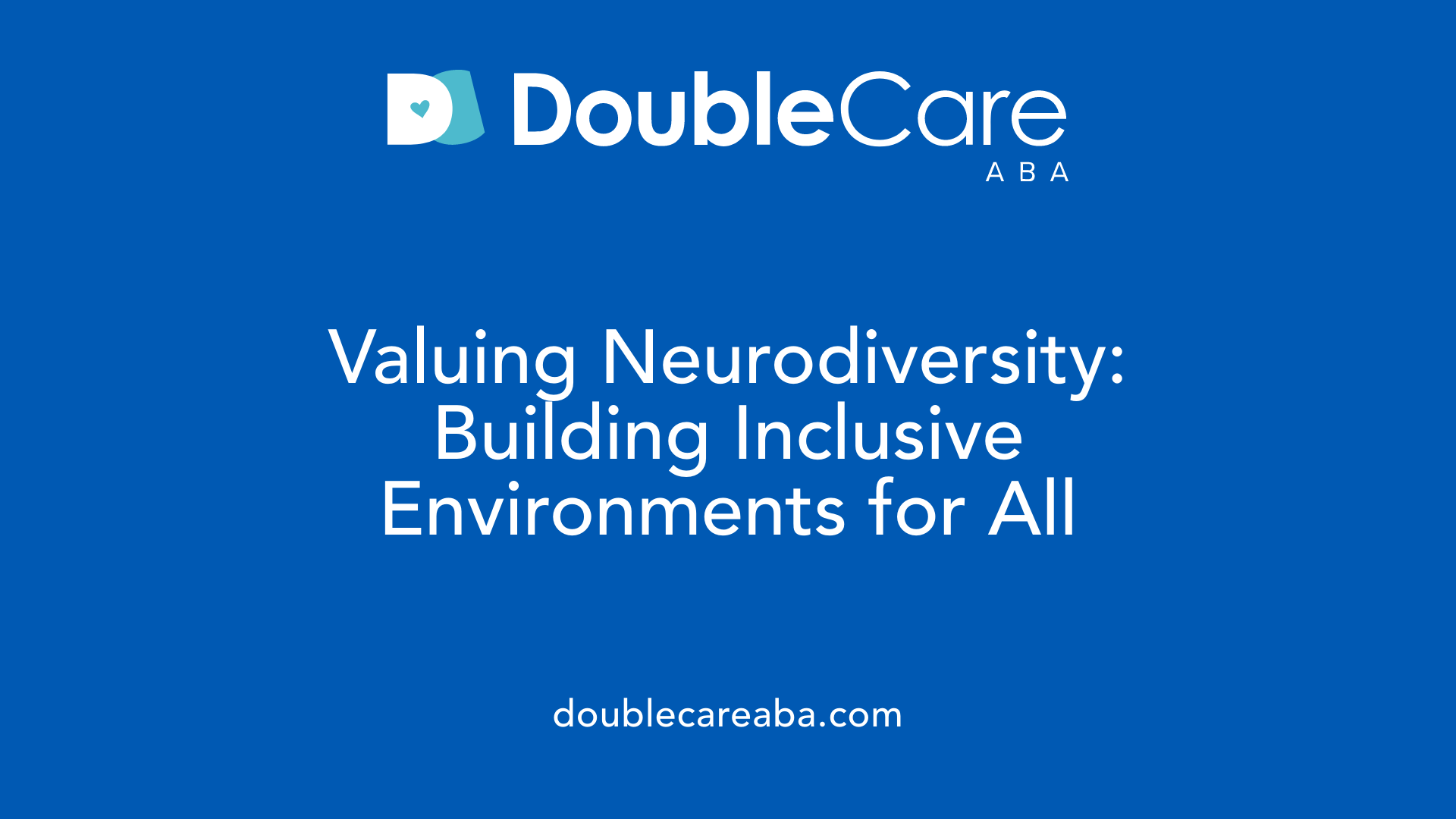
Policy implications and advocacy
A strengths-based perspective on autism emphasizes recognizing and nurturing the unique talents and abilities of autistic individuals. This approach has significant policy implications, encouraging governments and organizations to develop laws and programs that focus on empowerment rather than solely on challenges. Advocacy efforts can highlight success stories and promote initiatives that support autistic individuals in education, employment, and community participation.
Policies should prioritize providing access to tailored support services that leverage individual strengths. For example, programs that facilitate employment based on specific skills such as pattern recognition or creative talents can help autistic adults thrive economically and socially. Advocacy groups play a vital role in raising awareness, promoting acceptance, and influencing policymaker attitudes towards a more inclusive society.
Educational reforms and inclusive practices
In education, recognizing neurodiverse strengths can transform learning experiences. Schools can adopt inclusive practices that integrate visual-spatial teaching methods, hands-on activities for those with excellent memory, and special interest projects that foster engagement. Visual thinking and rule-based learning are common among autistic children and can be incorporated into curriculum design.
Offering personalized learning pathways that emphasize students’ interests and talents—such as art, music, mathematics, and science—can enhance confidence and academic achievement. Early identification of strengths through developmental assessments and IQ tests can inform support strategies, enabling children to develop their unique skills from a young age.
Workplace diversity initiatives
In the professional realm, recognizing autistic strengths can lead to more effective diversity initiatives. Many autistic adults report high levels of focus, creativity, honesty, and dedication—traits that are valuable in numerous industries.
Workplaces that implement autism-friendly policies—such as flexible routines, sensory accommodations, and clear communication—can enable autistic employees to excel. Emphasizing strengths like pattern recognition, systemizing, and attention to detail can benefit teams and organizations, especially in fields like technology, engineering, research, and creative arts.
Research involving self-reports from autistic adults indicates that their contributions include innovative problem-solving and precise work quality. Including autistic individuals in decision-making processes also fosters an environment of acceptance and collaboration.
Supporting families and communities
Supporting autistic individuals and their families involves providing resources that focus on strengths and abilities. Education for families about the variety of strengths autistic people possess helps shift perceptions from deficits to potential.
Community programs can offer activities and skills training centered on passions such as arts, sciences, or special interests, fostering social connection and personal growth. Furthermore, creating peer support networks and mentorship programs reinforces confidence and resilience.
Building community awareness about autism's positive aspects encourages societal acceptance. This acceptance can translate into better employment opportunities, inclusive social spheres, and policies that value neurodiversity.
| Area | Strategies | Examples |
|---|---|---|
| Policy | Develop supportive laws, promote awareness | Autism-specific employment policies, advocacy campaigns |
| Education | Personalized learning, integrating strengths | Visual-based curricula, special interest projects |
| Workplace | Accommodations, awareness training, inclusive hiring | Sensory-friendly workplaces, autism awareness workshops |
| Community | Support services, social inclusion programs | Mentorships, talent showcase events |
By focusing on these aspects, society can cultivate an environment where autistic strengths are recognized, valued, and utilized for collective benefit. This shift not only empowers autistic individuals but enriches the broader community with diverse perspectives and innovative ideas.
Conclusion: Embracing the Full Spectrum of Autism's Capabilities
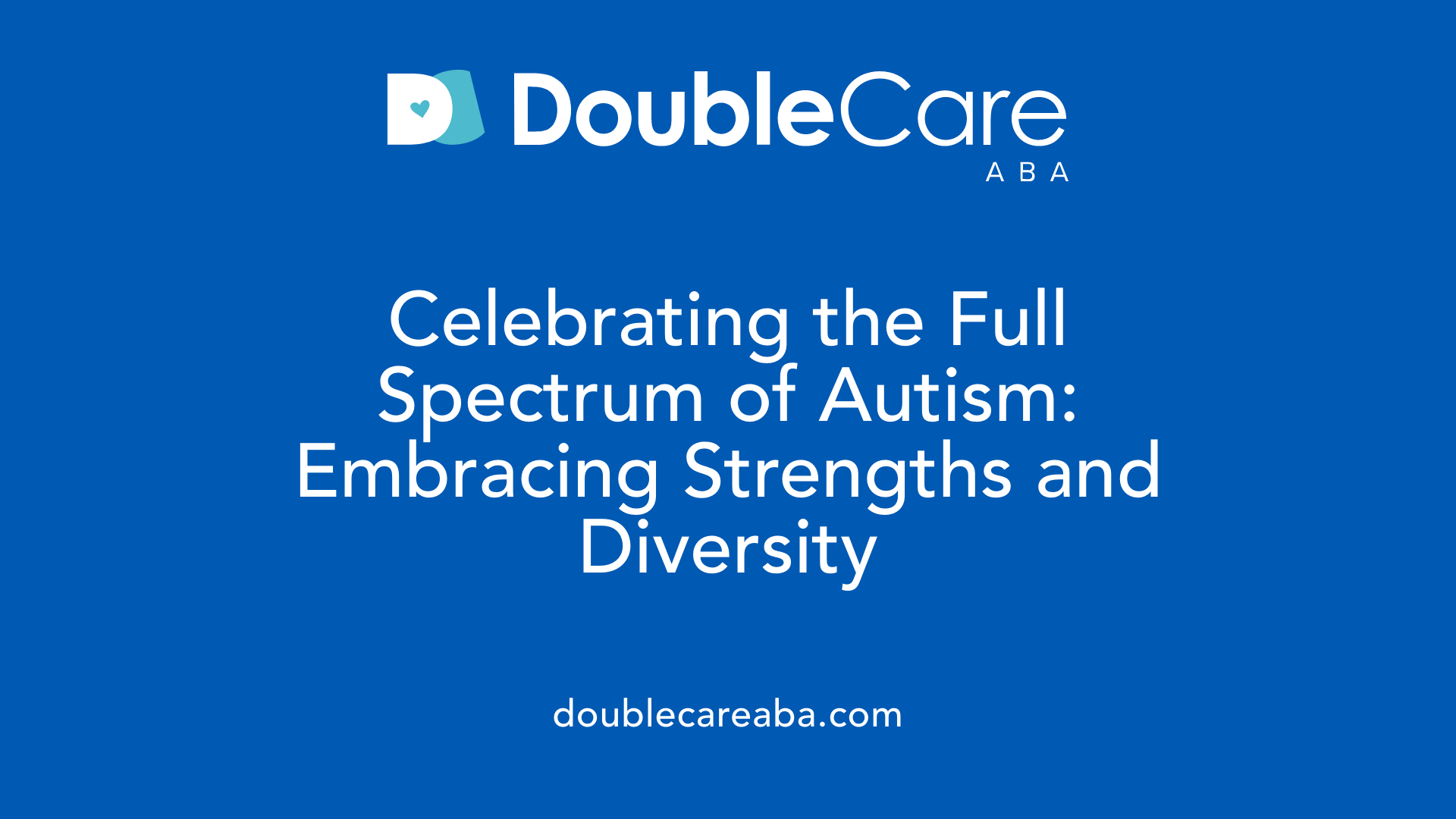
The importance of diversity and neurodiversity
Recognizing the varied strengths and abilities of autistic individuals underscores the importance of diversity and neurodiversity in society. Autistic people often exhibit remarkable talents in areas such as detailed visual perception, pattern recognition, artistic creation, mathematics, and logical reasoning. These strengths not only contribute to personal fulfillment but also drive innovation across fields like science, art, and technology.
Encouraging society to recognize and value strengths
Fostering an environment that appreciates the unique skills of autistic individuals is essential. When society shifts focus from solely addressing challenges to highlighting strengths, individuals feel more valued and motivated. For example, clinicians and educators are increasingly adopting strengths-based approaches, which emphasize developing personal skills and talents. This shift enhances self-esteem and confidence, empowering autistic persons to explore their potential.
The future of inclusive and supportive environments
The future of autism support lies in creating inclusive spaces that accommodate different sensory, cognitive, and social needs. Workplaces and educational institutions are beginning to recognize the advantages of neurodiverse teams and are adapting practices to leverage their strengths. For example, many autistic individuals excel in highly structured environments, benefiting from clear routines and defined interests. Technologies like assistive communication devices and tailored training programs are helping autistic individuals contribute meaningfully in various domains.
Empowering autistic individuals to thrive
Empowering autistic people involves valuing their character strengths such as honesty, loyalty, dedication, and their impressive problem-solving abilities. Encouraging passions and special interests can open pathways for employment, social connection, and personal growth. Visual thinking, creative talents, exceptional memory, and analytic skills can be harnessed to achieve remarkable accomplishments.
In creating a more inclusive future, understanding that neurodiversity enriches our society is fundamental. Recognizing and celebrating the innate talents of autistic individuals not only benefits those individuals but also enhances our collective innovation and resilience.
| Aspect | Strengths | Examples |
|---|---|---|
| Cognitive | Creativity, focus, memory, logical reasoning | Innovation in science and technology, artistic achievements |
| Sensory | Visual hypersensitivity, perfect pitch, heightened olfactory detection | Advancements in music, art, scientific research |
| Character | Honesty, loyalty, dedication, strong work ethic | Trustworthiness in personal and professional relationships |
| Behavioral | Detail orientation, punctuality, rule adherence | Precision in technical fields, reliability in roles |
| Social & Emotional | Deep justice sense, authenticity, meaningful solitude | Advocacy, honest communication, self-reflection |
Embracing these capabilities requires societal effort—educational reforms, workplace adaptations, and public awareness campaigns—that promote understanding and inclusion of neurodiversity. Moving forward, fostering environments where autistic strengths are recognized and cultivated will unlock immense potential, ultimately leading to a more innovative, empathetic, and resilient world.
Fostering Acceptance and Empowerment
Recognizing and valuing the strengths and abilities inherent in autism enriches our society, fostering an inclusive environment where every individual can flourish. By shifting our perspective to focus on potential and capability, we promote confidence, innovation, and an appreciation for neurodiversity. Embracing the full spectrum of autistic talents not only benefits individuals on the spectrum but also enhances the richness and resilience of our communities, paving the way for a future where differences are celebrated as strengths.
References
- Autistic strengths | Autistica
- Autism strengths & Challenges
- Strengths and abilities in autism - Altogether Autism
- the survey of autistic strengths, skills, and interests - PMC
- The Strengths and Abilities of Autistic People in the Workplace - PMC
- Thinking and learning strengths in autistic children and pre-teens
- Celebrating Neurodiversity: Powers and Strengths of Autism
- Focus on strengths as well as challenges | Autistica
- The Superpowers of Autism: Embracing Strengths and Abilities















